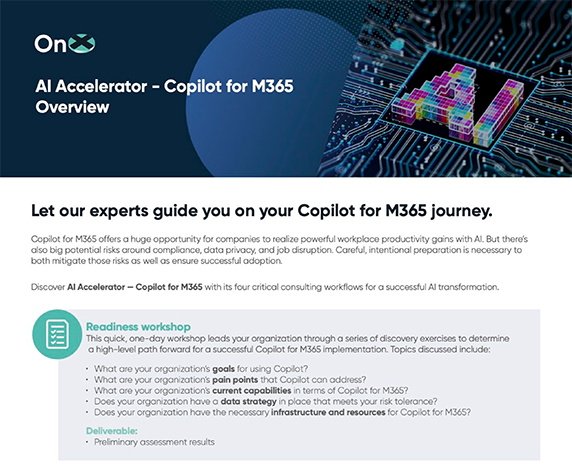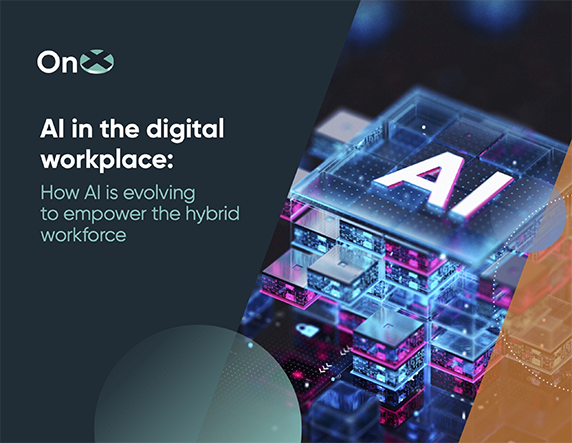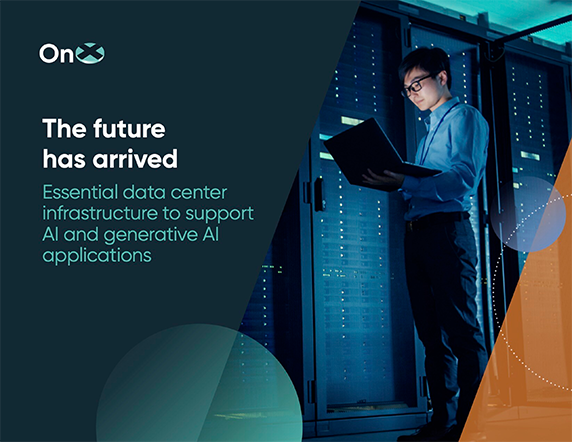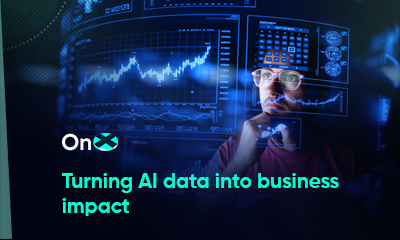
Fundamental shifts in the retail marketplace mean retailers face a landscape full of unknowns. Customers expect more engagement on new and varied channels, all while labor grows scarcer. In the last few years, we have seen accelerated digital transformation and integration of AI in retail, which has forced brands to grow into omnichannel engagement. Recent research indicates that these expectations show no signs of reverting:
- 87% of retail businesses surveyed have incorporated AI into their operations.
- 80% of consumers have changed brands because of poor customer service.
- 67% of consumers would choose self-service options over speaking to a representative.
To meet consumer demand and ease staffing challenges, retail businesses increasingly leverage AI both in-store and in digital channels. Multiple established use cases for AI in retail exist, and this article will survey existing options and explore potential developments.
Advantages of AI in retail
One of the most common concerns about AI is the idea that it might eliminate human workers’ jobs. However, the most significant business benefits are achieved from the thoughtful implementation of AI to aid employees. For example:
- Optimizing and consolidating multi-channel marketing strategy.
- Enhancing analytics to achieve new insights from in-store Internet of Things (IoT) data.
- Intelligent service automation and routing to make the best use of human agents’ time.
- Identifying and removing bottlenecks in business operations.
- Streamlining warehouse management for quicker order fulfillment.
The many roles of AI in retail
In-store uses
Cloud storage has opened new avenues of possibility for large-scale data capture, analysis, and machine learning, and retailers are taking advantage of IoT deployments.
In one example, networked beacons and consumer mobile device data allow for geofencing, targeted marketing offers based on location and purchase history, and heat mapping of foot traffic for store layout and location optimization. IoT cameras also enable intelligent, flexible store security to identify video content and store data in the cloud.
Additionally, leveraging AI in retail can enhance customer experience with augmented reality tools, allowing customers to preview clothes and accessories digitally or power in-app chatbots to help customers navigate the store and find their desired products.
Next steps
- Invest in modernizing IT infrastructure at stores to enable AI deployments.
- Develop an IoT deployment strategy that supports customer analytics and security improvements.
Learn More: Major shifts in retail technology signal the latest tech evolution
Consumer support uses
Large language model (LLM) generative AI creates new pathways for supporting consumers. The latest chatbots, dubbed intelligent virtual agents (IVAs), continue to improve natural language understanding (NLU) to grasp customer intent and respond appropriately to a broader range of queries—including those with typos or grammatical errors. IVAs allow more involved workflows, like product returns, to be automated and can escalate calls to human agents when necessary.
The IVA can supply the agent with a summary of the call thus far, streamlining the handoff and preventing the need for a frustrating, repetitive conversation with the customer. Broader AI-driven retail contact center tools can record voice calls and text chats, extract key points, and enter notes into the company’s CRM software.
With real-time consumer sentiment metrics, agents can also monitor the tenor of customer interactions and adapt immediately to improve the experience. At the same time, AI tools can recommend pertinent documentation to help the agent solve the customer’s problem, automate follow-up touchpoints, or even—as the technology improves—assist with real-time translation.
Next steps
- Evaluate current contact center technologies for effectiveness.
- Investigate the latest cloud-based Contact-Center-as-a-Service (CCaaS) tools, such as CXSync, for AI-driven improvements.
Business operational uses
Intra-business communications benefit from AI tools, which power retail software platforms and mobile devices that keep managers in close contact with employees and enable intelligent scheduling.
AI is also a boon to marketing campaigns. Generative AI assists in creating and redesigning collateral swiftly, while intelligent analytics develop customer profiles that help marketers personalize the customer experience.
AI can streamline logistics and warehouse operations in fulfillment centers or automate documentation such as payment processes.
IT teams can leverage AI to optimize network performance, monitor and improve user experience, and enhance the organization’s cybersecurity posture with advanced threat detection.
Next steps
- Audit business processes for inefficiencies and build an AI integration strategy.
- Develop company standards surrounding generative AI use.
Learn more: Transforming the digital workplace with AI
Avoid common AI pitfalls
Critical to successful AI implementation is a thorough understanding of its capabilities. While AI tools continue to evolve swiftly, the technology is fundamentally mimetic—which constrains its capacity for transformative innovation. AI is also capable of fabrications and inaccuracies, so human agents must always check customer communication.
Businesses should also be aware of public LLMs’ data security and privacy policies. Best practices recommend using a company-specific, private LLM for generative AI purposes to prevent accidental release of sensitive business data. Private LLMs must be carefully trained, as well, to minimize the introduction of bias.
Lastly, regulations surrounding the use and training of AI are still evolving. Retailers should keep abreast of the latest data privacy policies to ensure compliance.
Next steps
- Audit company use of LLMs from a data governance perspective.
- Establish comprehensive AI use policies and develop private, isolated AI training datasets.
- Consult experts in retail AI deployment.
Partner with OnX to achieve your retail AI transformation.
Advancements in AI in the retail industry represent an undeniable competitive advantage. Fueled by the start of digital transformation, customer expectations will continue to bend toward the efficiency, personalization, and self-service that AI enables. Retailers must develop a strategy for AI transformation that prioritizes data security and regulatory compliance.
However, they need not do so alone. Take advantage of OnX’s retail expertise to create your AI roadmap. OnX offers consultation, design, testing, and implementation support to ensure the success of your AI integrations.
Contact OnX today to learn how AI adoption in retail can reshape your business for the future.













